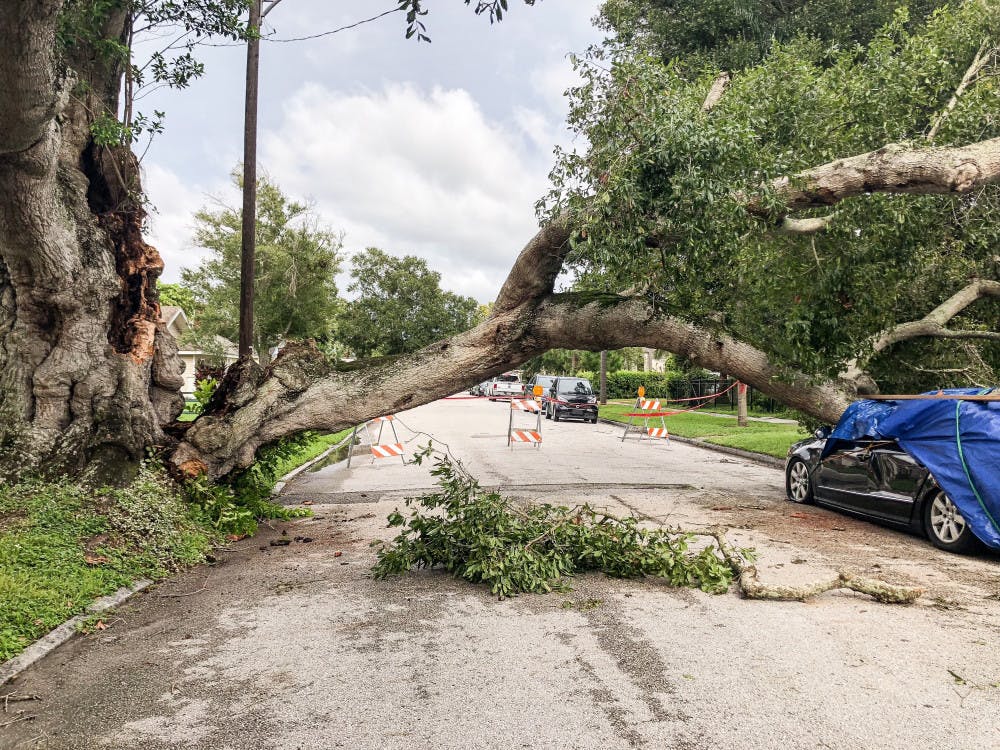By Caroline King
Correspondent
Three weeks after Hurricane Maria, Puerto Rico continues to feel the devastating effects.
As of Oct. 14, more than 1.2 million people are without potable water, and 85 percent of the population don’t have electricity, according to CNN.
The threat of thirst and starvation has left Puerto Ricans begging for help.

Puerto Rico continues to feel the devastating effects (envato elements).
“We are dying, and you are killing us with the inefficiency and the bureaucracy,” the mayor of San Juan, Carmen Yulin Cruz, said in a press conference on Sept. 30.
USA Today reported that Cruz called on the Trump administration to “speed up the delivery of food, water, medicine and fuel.”
President Donald Trump responded on Sept. 30, according to Vox. He tweeted that Cruz demonstrated “poor leadership” and the people of Puerto Rico “want everything to be done for them.”
The Chicago Tribune reported on those who criticized the response like House Minority Leader Nancy Pelosi and former Lieutenant General Russel Honoré.
“The mayor’s living on a cot, and I hope the president has a good day at golf,” Honoré told CNN.
Some were frustrated that President Trump waited until Tuesday, Oct. 3, to visit Puerto Rico.
“(The president) should have come sooner. What we’re living here is a crisis,” Michael Garcia, a 26-year-old Puerto Rican resident, told NBC.
The goal of the visit was for the government to assess damage, according to USA Today. The concern was that Trump’s visit would end up further politicizing the situation, instead of focusing on relief for the desperate conditions.
“I hope he’s coming here to help,” Sariel Ojeda, a 48-year-old Puerto Rican teacher, told USA Today.
Vox reported that when Trump visited Puerto Rico, he praised the federal response for only a death count of 16 as of his visit.
Trump later joked, “I hate to tell you, Puerto Rico, but you’ve thrown our budget a little out of whack.”
While Trump threw paper towel rolls out to the crowd, disaster victims in Puerto Rico were left with uncertainty, wondering where their next meal will come from and how long their loved ones will go without health care, as reported by The Huffington Post.
The Hill reported that those with kidney disease “need to get dialysis roughly three times a week or they will die.” Approximately 5,000 Puerto Ricans suffer from kidney disease. This is just one of many life-or-death situations on the island.
Fortunately, CNN reported about 19,000 civilian and military personnel are supporting relief efforts, and FEMA on Oct. 11 approved a $70 million assistance package to the Puerto Rico Aqueduct and Sewer Authority.
The Huffington Post reported that all of Puerto Rico’s airports as of Oct. 2 were open.
This may help compensate for the island’s damaged infrastructure and unreliable supply distribution that exacerbated the death toll to 48 as of Saturday, Oct. 14, according to CNN.
One thing is clear — Puerto Rico needs aid like never before, and people will suffer without it.







